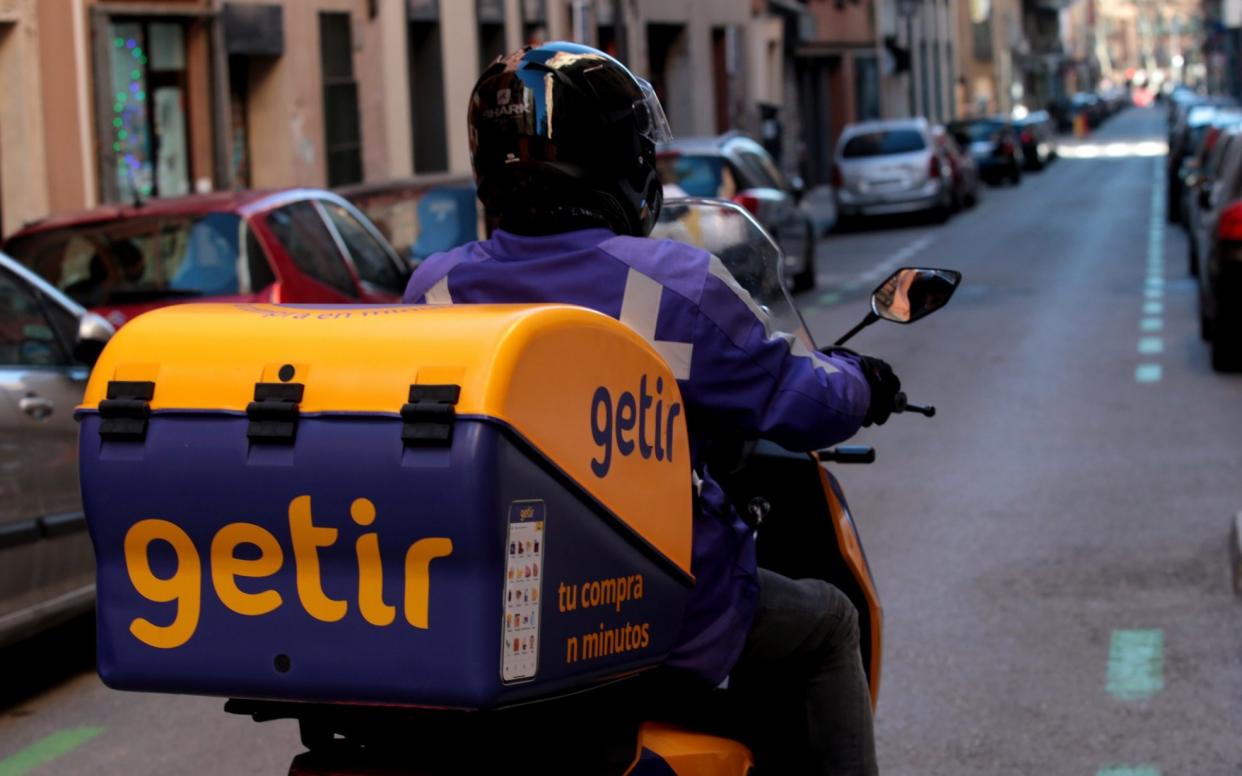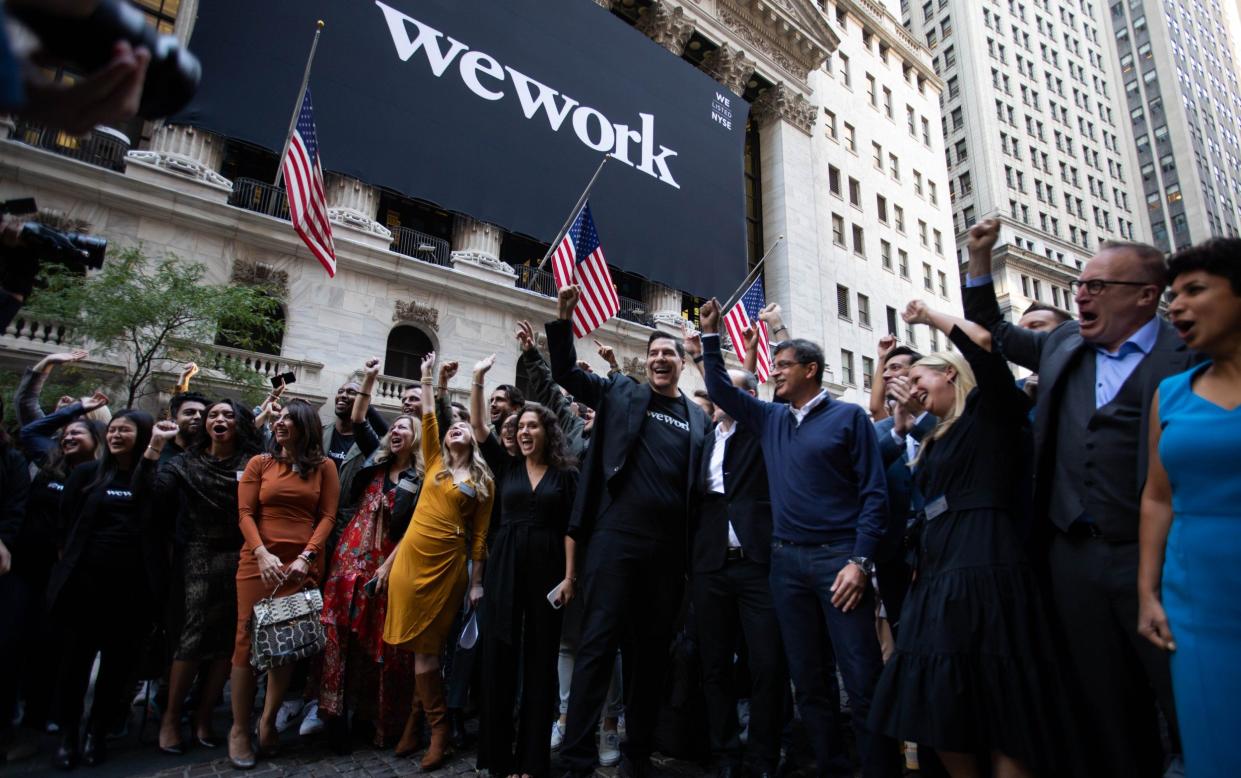The fast delivery bubble has burst – its funders have serious questions to answer

At least it was all over very quickly. With the news this week that Getir is exiting both the British and German markets, the instant delivery bubble has burst.
The companies that would deliver a jar of mayonnaise, some shampoo, or, if you were throwing an impromptu party, a few bottles of gin, are all falling by the wayside. The trouble is, the venture capital houses that threw billions of investment at the industry now have some tough questions to answer.
If they got this so badly wrong, it is hard to understand how they can be trusted with anyone’s money.
At least there won’t be so many brightly coloured bikes clogging up city centre streets. The instant delivery company Getir announced last week that it was quitting the UK, Germany, the Netherlands and the US, and would focus instead on its home market in Turkey.
It has already pulled out of France, Spain and Portugal. It is far from alone. Many of its rivals have already scaled back operations, or else closed their doors completely. If you need something delivered to your front door within the next few minutes there are far fewer options than there used to be.
It is unlikely that anyone will miss that very much. There are plenty of corner shops that are open late if you need to pick up something at the last minute, and the major supermarket chains are still expanding their convenience stores.
And yet, investors have been badly burned. At its peak, Getir was valued at an astonishing $12bn, enough to make it a FTSE 100 company if it was listed in London. It went on a buying spree that included the acquisition of Weezy in Britain, and Gorillas in Germany in a deal that was worth an estimated $1.2bn.

Huge sums of money were also poured into rivals such as Zapp and GoPuff. Rewind to 2021 and 2022, and this was an industry that every entrepreneur and venture capital house wanted a slice of. Even some of the corporate giants wanted to get in on the boom.
At one point, WH Smith was planning home delivery, in partnership with Deliveroo, just in case you needed some overpriced paper clips within the next few minutes. So was BP, in case you wanted an emergency sausage roll from one of its forecourts and couldn’t be bothered to microwave one yourself.
The trouble is, the economics of the industry were always terrible. By definition, the average orders were always tiny. It has proved hard enough for the likes of Ocado to make money on home deliveries of a weekly shop, but it is far tougher for those ferrying only small, last-minute items.
There is only so much money people will pay to avoid a five-minute walk to the shops.
The marketing costs are punishing, with special offers and vouchers required to keep customers on board. The companies are reliant on an endless supply of cheap labour, often immigrants, to run the service. This wellspring is unreliable and the zero-hours nature of the job leaves the workforce free to leave at any time.
These businesses are almost uniquely vulnerable to a cost of living crisis, with home delivery one of the first luxuries that can be axed when real wages are under pressure.
I don’t claim any special prescience – far from it – but even this columnist managed to observe back in 2022 that “home delivery is the biggest bubble out there”. It should have been obvious to just about anyone that this was going to be an exceptionally difficult industry, and one where hardly anyone would make any money. It was a niche, at best.
So what, you may ask? The real problem is this: the venture capital industry that bankrolled these instant delivery companies keeps pouring huge sums of money into industries with very flimsy business models.

We saw it with the blockchain, whatever that was exactly, which attracted lots of investment a decade ago and yet has yet to yield any companies of significant size.
We saw a ton of money piling into fintech, and while there are some big companies starting to emerge, such as Monzo and Revolut, we have yet to see a major IPO or trade sale that would crystallise the value for the backers of all those businesses.
Lots of cash was sunk into new media startups such as Vice, valued at almost $6bn at its peak, most of which has since disappeared. The car dealer Cazoo was worth almost $8bn at its peak, but following its listing it is valued at just a fraction of that.
WeWork, the leader in shared office space, was valued at $47bn by Venture Capital (VC) firms who thought it had revolutionised the way people work, but ended up going bust. The list goes on and on.
Right now, money is being poured into a handful of artificial intelligence start-ups, but it is very hard to believe that frenzy will end any better than instant food delivery.
Sure, picking early-stage companies is hard. It is not easy to find the right entrepreneur with the right idea at the right time. Everyone understands that there will be plenty of failures, and one or two big winners will make it all worthwhile.
But instead there is a depressing pattern of group-think, of jumping on bandwagons, and over-hyping businesses that are never going to make any money.
The Government is planning for more and more pension fund money to be allowed to go to the VC houses. The Labour Party, if and when it takes power, plans to double down on that, and even thinks it can pick the winners itself, setting out the “strategic industries” of the future that will be prioritised for investment.
Yet failure after failure shows pension funds or mainstream investors should be limited in their exposure to risky and misguided VCs – the all-too-easy to predict implosion of the instant delivery industry has proved that all over again.


